
At Discussion Group 11, chaired by comrade Hoang Duy Chinh, member of the Party Central Committee, Secretary of the Provincial Party Committee, Head of the National Assembly Delegation of Bac Kan province, there were 12 delegates from the National Assembly Delegations of Bac Kan, Long An , Son La and Vinh Long provinces participating in the discussion and contributing many opinions to the above draft Laws.
Decentralization and increased authority for grassroots courts
Delegate Nguyen Thi Thuy, Vice Chairwoman of the National Assembly's Committee on Law and Justice (National Assembly Delegate of Bac Kan province) analyzed the practical situation and directly commented on the Draft Law amending and supplementing a number of articles of the Civil Procedure Code, the Administrative Procedure Law, the Juvenile Justice Law, the Bankruptcy Law and the Law on Mediation and Dialogue at Court.
Regarding the regulations on decentralization and increasing authority for the grassroots level, delegate Nguyen Thi Thuy said that currently, according to the provisions of the Law on Administrative Procedures and the Civil Procedure Code, the authority to hear first-instance cases mainly belongs to the District People's Court - the lowest level in the court system, and some cases are still assigned to the Provincial People's Court. However, in the context of restructuring the apparatus according to Resolution No. 60-NQ/TW, there will no longer be separate District People's Courts, but 2 or 3 units will be merged into Regional People's Courts. At the same time, the High People's Court will no longer be maintained, and the court system will only have 3 levels: the Supreme People's Court, the Provincial People's Court and the Regional People's Court.
Expressing agreement with the regulation that 100% of civil and administrative cases will be tried at first instance at the regional People's Court, instead of about 90% as at present; appeals will be conducted by the provincial People's Court and final judgment will be undertaken by the Supreme People's Court. However, delegate Thuy suggested that attention should be paid to the issue of resolving final judgment petitions, because according to reports, each year there are about 11,000 petitions for final judgment, but only less than 10% have grounds to review the case. This causes overload and makes the Supreme People's Court become the trial level - in fact, it is contrary to the nature of the final judgment agency. Therefore, the delegate said that the fundamental solution is to amend the provisions on final judgment, especially the process of receiving and resolving petitions, to limit unfounded petitions and avoid wasting resources. At the same time, the Supreme People's Court and the Supreme People's Procuracy are requested to urgently summarize, research and submit this content to the National Assembly as soon as possible.
Analyzing some inconsistent points in the draft Law on Juvenile Justice, especially when the Ministry of Public Security proposed to assign investigators from the provincial-level police to be assigned as Chief/Deputy Chief of Commune Police with the same authority as the head of the investigation agency for less serious and serious crimes (under 7 years in prison). Delegate Thuy said that the draft Law only stipulates authority for the Chief and Deputy Chief of the investigation agency, leading to the Chief/Deputy Chief of Commune Police being unable to perform necessary investigation tasks, especially in the current context where there is no longer a district-level investigation agency. Therefore, the delegate requested the Supreme People's Court (the agency in charge of drafting the Law) to urgently update this new content into the draft to ensure consistency and synchronization with the revised Criminal Procedure Law. This is very urgent to ensure the requirement of quick and timely handling of situations arising in the locality, especially in large areas bordering many provinces.
Election preparation work needs to be clearly regulated and decentralized.
Delegate Ha Sy Huan, member of the Provincial Party Committee, Deputy Head of the Provincial National Assembly Delegation and Delegate Nguyen Thi Hue, Vice President of the Provincial Women's Union, contributed comments on regulations on election preparation in the draft Law amending and supplementing a number of articles of the Law on Election of National Assembly Deputies and People's Council Deputies.
Regarding the determination of voting areas, delegate Ha Sy Huan said that the new point amended in the draft Law is that the determination of voting areas is decided by the People's Committee at the commune level, instead of the current Law requiring approval by the People's Committee at the district level. However, the draft Law's additional provision that "in necessary cases, the Provincial People's Committee shall adjust" is unclear, and it is proposed to stipulate that "the Provincial People's Committee shall direct the Commune People's Committee to proactively adjust" to be consistent with the assigned authority. At the same time, the delegate suggested that it is necessary to provide clearer guidance on what constitutes a "necessary case" to avoid confusion when applying it in practice.
Regarding the regulation on organizing conferences to collect voters' opinions on candidates, delegate Ha Sy Huan said that the draft Law stipulates that the People's Committee and the Standing Committee of the Vietnam Fatherland Front Committee at the provincial level must prepare a report and send it to the National Election Committee and the Central Committee of the Vietnam Fatherland Front at the same time, which is unnecessary. To ensure clear decentralization, avoid overlap, and be consistent with the authority of each level when implementing at the grassroots level, the delegate suggested adjusting it in the direction that the Vietnam Fatherland Front Committee at the provincial level shall report to the Central Committee of the Vietnam Fatherland Front; the Provincial Election Committee shall report to the National Election Committee; for commune, ward, and special zone levels, the Election Committee and the Standing Committee of the Vietnam Fatherland Front Committee at the commune level shall report to the People's Committee and the Provincial Fatherland Front.
Discussing the draft Law, delegate Nguyen Thi Hue suggested that, in addition to the cases where candidates are not allowed to run for National Assembly and People's Council deputies as stipulated in Article 37 of the current Law, the drafting agency should consider and add to the draft Law "subjects who are being complained about and denounced for dishonesty in declaring assets and income and subjects who are being inspected by the Party's inspection agency when there are signs of violations" to ensure transparency and integrity of candidates for National Assembly and People's Council deputies.
Concerned about the new regulation on the time interval between the consultative conferences (the first time is 55 days from the second time, and the second and third time is only 17 days), Hue delegate said that the time interval between the consultative conferences is not really reasonable, lacks balance, and can affect the quality of election preparation work. Therefore, he suggested that the Drafting Committee consider and maintain the time frames for organizing consultative conferences as currently regulated to ensure time for preparation and full and effective implementation of election work./.
Source: https://baobackan.vn/dbqh-tinh-bac-kan-tich-cuc-thao-luan-gop-y-kien-vao-cac-du-an-luat-post70726.html




![[Photo] Ready for the top competitions of Vietnamese table tennis](https://vphoto.vietnam.vn/thumb/1200x675/vietnam/resource/IMAGE/2025/5/18/9c547c497c5a4ade8f98c8e7d44f5a41)

![[Photo] Many young people patiently lined up under the hot sun to receive a special supplement from Nhan Dan Newspaper.](https://vphoto.vietnam.vn/thumb/1200x675/vietnam/resource/IMAGE/2025/5/18/6f19d322f9364f0ebb6fbfe9377842d3)



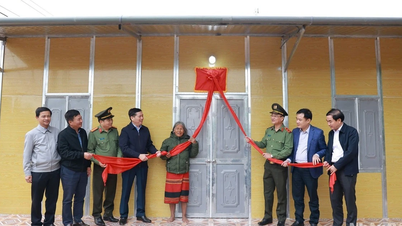



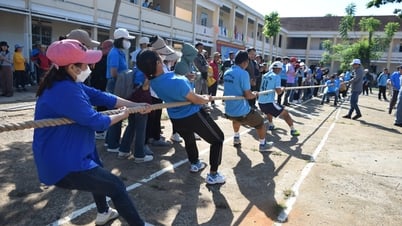








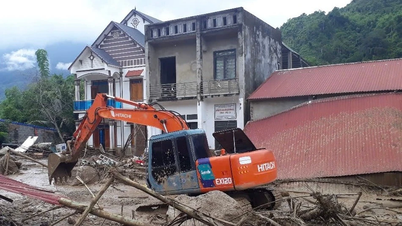
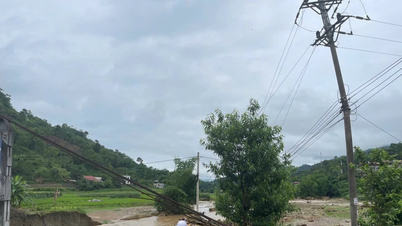
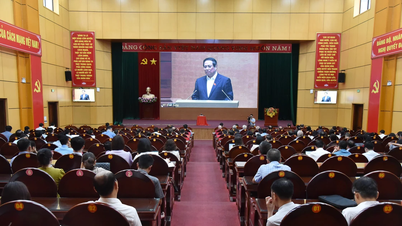
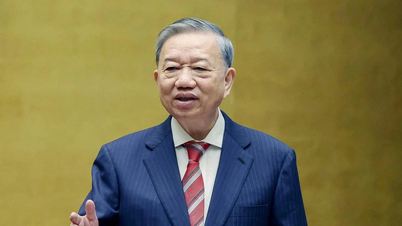
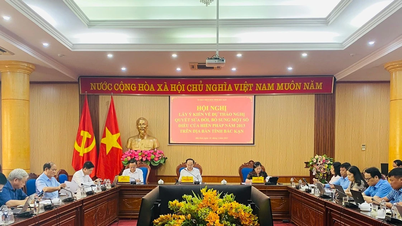
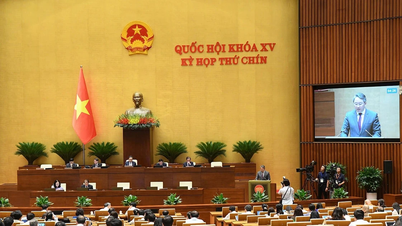
![[Photo] General Secretary To Lam visits exhibition of achievements in private economic development](https://vphoto.vietnam.vn/thumb/1200x675/vietnam/resource/IMAGE/2025/5/18/1809dc545f214a86911fe2d2d0fde2e8)


























































Comment (0)